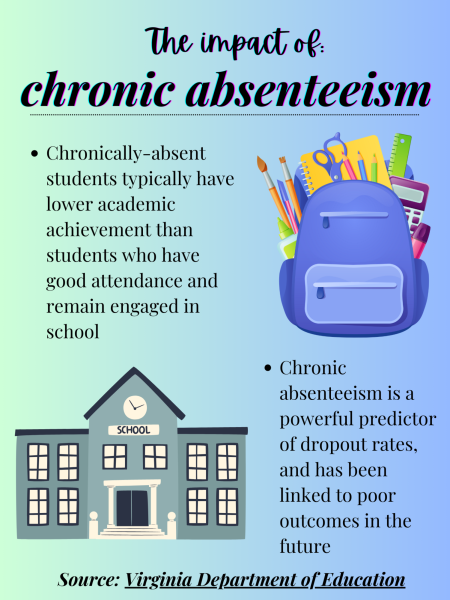
As another school day ends, many students find themselves staying behind for clubs or other extracurriculars, making plans with friends or boarding their preferred method of transportation before they make their way home.
Other students, however, make the poor choice of squandering their time by spending the whole day at home typically without a legitimate reason, doom-scrolling on social media and falling further behind in school every time they repeat this cycle.
Reasons for being chronically absent can range from mental or emotional health issues, to having to care for another family member, to experiencing difficulties with housing or food, per the National Association of Elementary School Principals (NAESP). Yet for students who are truant and, therefore, purposefully choose to disengage from their academic responsibilities and school in general, they not only miss out on important curriculum that is being taught and reviewed during class time, but also on opportunities to bond with their peers and explore interests related to their potential future careers, per the American Federation of Teachers.

Additionally, although the internet is a great resource for students to access when attempting to catch up after being chronically absent, it cannot be a substitute for all the in-person instruction they missed, especially since it does not allow for hands-on learning or the proper clarification needed to truly succeed in certain subjects.
According to Virginia’s Legislative Information System (LIS), if, after being contacted on multiple different occasions, a chronically-absent student’s parent makes no indication that they are either aware of the situation or intend to take reforming action, a conference must be scheduled with school personnel, an attendance officer and other community service providers to find ways to resolve any conflicts resulting in that student’s poor attendance. Such an approach ensures that the student does not receive consequences for any potential and previously unknown barriers to their attendance, which may include their circumstances or persisting issues that may be out of their control.
To effectively prevent chronic absenteeism from becoming an issue, it is of utmost importance that administrators and other school officials continue to keep track of trends in individual student attendance and communicate with parents at the first sign of poor attendance.
Parents also need to be actively involved in their child’s education by ensuring they are getting their schoolwork done and that their child feels comfortable enough to discuss any issues they may be facing in school. This is significant especially since such students generally have better attendance and behavior, in addition to better grades and social skills, per the Annie E. Casey Foundation.
Furthermore, it is crucial that students who are chronically absent because of their poor academic performance advocate for themselves by reaching out to peers who may have a better understanding of that subject for help, or finding qualified tutors that can assist them in producing improved academic results and bolstering their confidence in their academic ability.
Ultimately, students that are truant need to properly utilize the plethora of different resources available to them on their journey to improving their attendance, especially since taking advantage of a quality education will only serve to benefit them in the long run, allowing them to lead well-informed and prosperous lives.








